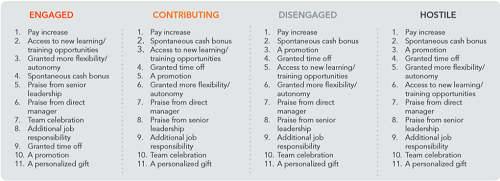Last week I got my ass handed to me for daring to consider that those who interview with a company, should pay for interview feedback. Not just normal interview feedback, like thanks, but no thanks, but something really good and developmental. Most people think that idea is bad. Interview feedback should be free. It’s not that I really want to charge people who interview a fee to get feedback, it’s just I think we could do so much better in terms of candidate experience, but we have to get out of our current mindset to shake things up a bit.
This all leads me to the next idea (hat tip to Orrin Konheim @okonhOwp) what if companies paid interviewees for their time?
Cool, right!?
We’ve built this entire industry on shared value. Organizations have jobs, candidates want jobs, let’s all do this for free. What happens when the equation isn’t equal? What if candidates didn’t want your jobs? Could you get more people to come out an interview if you paid them? How much would it be worth? It’s a really cool concept to play around with, if we can get out of our box for a bit.
Let’s say you’re having a really, really hard time getting Software Developer candidates to even consider your jobs and your organization. It’s a super tough market, and you just don’t have a sexy brand. You also don’t have the time to build a sexy brand, you need the talent now! How much would it take to entice great candidates to give you an hour? $100? $500? $1,000? What if I told you I could have your CIO interviewing 5 top Software Developers tomorrow for 5 hours for $5,000? Would you do it?
I hear the backlash of questions and concerns already forming in your head!
– People would just take the money, but not really want the job!
– How would you know these people were serious?
– Why would you pay to have someone interview when others will for free?
– Did you get hit on your head as a child?
– This might be the dumbest idea since your idea last week.
When we think about really having a great candidate experience, shouldn’t compensation be a apart of the conversation. For most interviews you’re asking someone to take time off work, losing salary, time off, putting themselves at risk of their employer finding out, etc. At the very least, you would think that we might offer up some kind of compensation for their time. I’m not talking about interview expenses, but real cold hard cash, we appreciate your time and value it!
If you started paying candidates to interview, do you think you would get and have better or worse interviews?
When you put value to something, i.e., an interview, people tend to treat it as such. Now that interview that they might go, might not go, becomes something they have to prepare for, because, well, someone is paying me to do this. To interview. I’m guessing if you paid your candidates to interview, you would get a higher level of candidate, and have a higher level of success in hiring. It’s just a theory, wish I had the recruiting budget to test it out!

